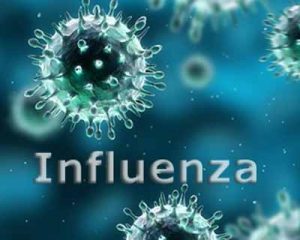- Home
- Editorial
- News
- Practice Guidelines
- Anesthesiology Guidelines
- Cancer Guidelines
- Cardiac Sciences Guidelines
- Critical Care Guidelines
- Dentistry Guidelines
- Dermatology Guidelines
- Diabetes and Endo Guidelines
- Diagnostics Guidelines
- ENT Guidelines
- Featured Practice Guidelines
- Gastroenterology Guidelines
- Geriatrics Guidelines
- Medicine Guidelines
- Nephrology Guidelines
- Neurosciences Guidelines
- Obs and Gynae Guidelines
- Ophthalmology Guidelines
- Orthopaedics Guidelines
- Paediatrics Guidelines
- Psychiatry Guidelines
- Pulmonology Guidelines
- Radiology Guidelines
- Surgery Guidelines
- Urology Guidelines
Rapid tests for detection of flu only 50 to 70 percent accurate : CDC

According to Centers for Disease Control and Prevention (CDC), the most commonly performed Rapid/quick tests for detection of flu at hospitals and clinics during flu season are only 50 to 70 percent accurate. Some patients go for Quick tests as they can be easily done in the office as what they call a 'point of care'.There are other patients who go for a comprehensive lab test, which takes longer to complete and is more accurate.
Influenza—or the "flu"—is an illness of the respiratory system. Influenza A is more common and can be more serious than influenza B. It spreads easily through water droplets in the air from coughs or sneezes of people who are infected. It often affects many people at the same time during fall and winter.
Symptoms of the flu often appear suddenly, about 1 to 4 days after you are infected. Most people will recover from the flu within a few days to less than 2 weeks, but those with a weakened immune system may develop severe pneumonia or other serious complications.The rapid test quickly checks for signs of the influenza viruses A and B in a sample of secretions from nose or throat of patient.
The difference in cost between a comprehensive lab test and Quick tests is huge as a quick test costs anywhere between $5 to $10. whereas a lab test can cost upwards of $200.This may be a prohibitive factor for Lab test and many patients may be tempted to go for quick test. Quick test requires a swab deep in the nasal cavity for a proper sample, but the results, which are back in around five minutes, can produce false negatives negative.Therefore the experts feel that even if a rapid test comes back negative, healthcare professionals must treat symptoms.

Disclaimer: This site is primarily intended for healthcare professionals. Any content/information on this website does not replace the advice of medical and/or health professionals and should not be construed as medical/diagnostic advice/endorsement or prescription. Use of this site is subject to our terms of use, privacy policy, advertisement policy. © 2020 Minerva Medical Treatment Pvt Ltd